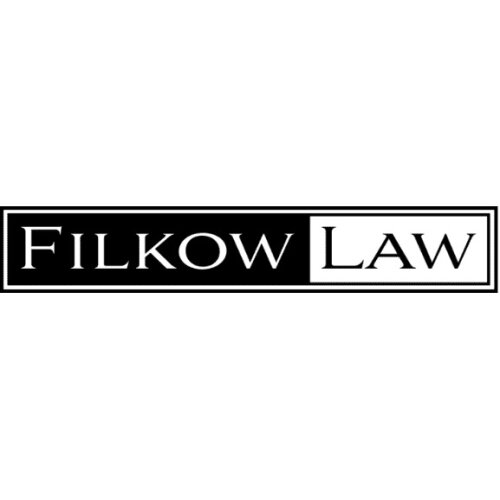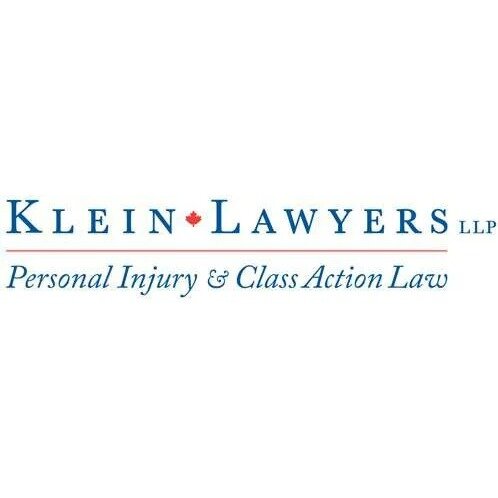Best Accidents & Injuries Lawyers in Vancouver
Share your needs with us, get contacted by law firms.
Free. Takes 2 min.
List of the best lawyers in Vancouver, Canada
Canada Accidents & Injuries Legal Articles
Browse our 1 legal article about Accidents & Injuries in Canada written by expert lawyers.
- What to Do After a Serious Car Accident in Canada: A Guide
- Most provinces have a 2-year limitation to sue for injury, counted from when you knew or ought to have known you had a claim. Quebec is 3 years. Municipal notice deadlines can be as short as 7-60 days. Auto injury rules vary sharply by province: BC and Quebec use largely... Read more →
About Accidents & Injuries Law in Vancouver, Canada
Accident and injury law in Vancouver, Canada, tackles personal injury situations, such as car accidents, slip & fall injuries, and medical malpractice, amongst others. This field of law is designed to protect individuals who have suffered harm due to another person's negligence or intentional misconduct. It works on a principle known as 'tort' law, which allows the injured party to receive compensation for their loss.
Why You May Need a Lawyer
Legal advice is crucial in personal injury cases for various reasons. For instance, making a personal injury claim can be complex and requires knowledge of specific local laws and regulations. Also, dealing with insurance companies can be challenging and a lawyer who specializes in Accident & Injury law can help navigate these complexities. Also, lawyers can objectively evaluate a situation and assess potential compensations to ensure fair treatment.
Local Laws Overview
In Vancouver, the statute of limitation for personal injury cases is two years from the date of the accident or injury. This means that the injured party has two years to file a lawsuit against the person or entity responsible for their harm. It should be noted that Vancouver follows the principle of "Pure Comparative Negligence". Following which, if you are partially at fault for the accident, your compensation will be reduced by the percentage of your fault.
Frequently Asked Questions
1. What kind of compensation can I expect?
Compensation depends on the specifics of the accident and injury, but it may cover medical expenses, rehabilitation costs, loss of income, property damage, and non-economic damages such as emotional distress.
2. How long does a personal injury case take?
Time frames can vary depending on the complexity of the case, any investigations or medical evaluations required, and court schedules.
3. Do I have to go to court for my injury claim?
Not all personal injury cases go to court. Many are settled through negotiations with insurance companies or private settlement between parties. However, if a fair agreement can't be reached, going to court may be necessary.
4. What is a contingency fee?
Many personal injury lawyers work on a contingency fee basis. This means that they receive a percentage of the final settlement or court award. If no compensation is received, the lawyer does not charge any fees. However, they may still charge for other costs such as court filing fees or expert witness services.
5. Can I handle my case without a lawyer?
While it is possible to handle a personal injury case without a lawyer, it is not advisable due to the complexity of such cases. A lawyer brings expertise that can maximize your compensation and handle complications that may arise.
Additional Resources
The Law Society of British Columbia offers resources related to finding a lawyer, understanding your rights, and navigating the legal system. The Canadian Legal Information Institute provides free access to Canadian law, including court judgments. The Insurance Corporation of British Columbia can provide information on dealing with vehicle accident claims in Vancouver.
Next Steps
If you're in need of legal assistance regarding an accident or injury, the first step is to find a lawyer specializing in personal injury law. Make sure to check their credentials, experience, and reviews. Once you have found a suitable lawyer, schedule a consultation to discuss your case and decide on the best course of action.
Lawzana helps you find the best lawyers and law firms in Vancouver through a curated and pre-screened list of qualified legal professionals. Our platform offers rankings and detailed profiles of attorneys and law firms, allowing you to compare based on practice areas, including Accidents & Injuries, experience, and client feedback.
Each profile includes a description of the firm's areas of practice, client reviews, team members and partners, year of establishment, spoken languages, office locations, contact information, social media presence, and any published articles or resources. Most firms on our platform speak English and are experienced in both local and international legal matters.
Get a quote from top-rated law firms in Vancouver, Canada — quickly, securely, and without unnecessary hassle.
Disclaimer:
The information provided on this page is for general informational purposes only and does not constitute legal advice. While we strive to ensure the accuracy and relevance of the content, legal information may change over time, and interpretations of the law can vary. You should always consult with a qualified legal professional for advice specific to your situation.
We disclaim all liability for actions taken or not taken based on the content of this page. If you believe any information is incorrect or outdated, please contact us, and we will review and update it where appropriate.
Browse accidents & injuries law firms by service in Vancouver, Canada
Vancouver, Canada Attorneys in related practice areas.














